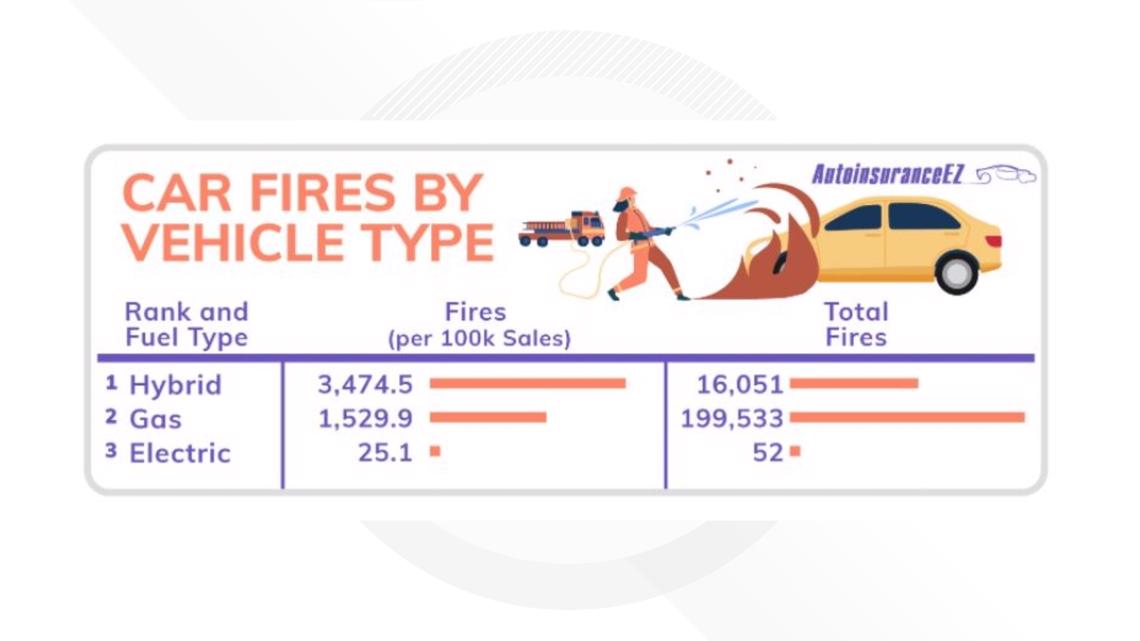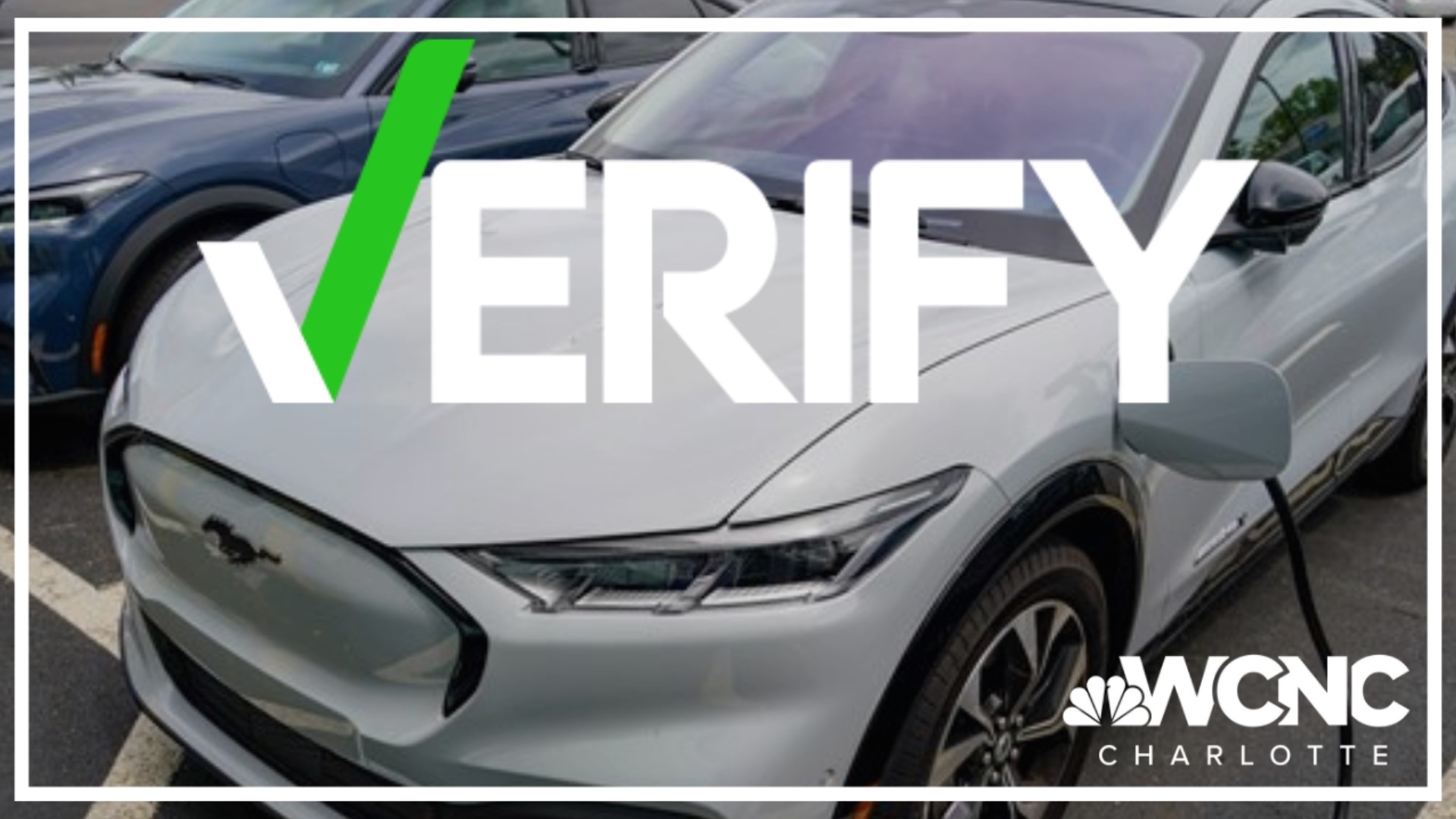CHARLOTTE, N.C. — North Carolina will soon be the home of two more electric vehicle battery factories. Toyota and Vinfast both announced multi-million-dollar facilities to create new technology to meet the growing demand for electric and hybrid vehicles.
Many people have questions and concerns about the batteries. We're going to tackle one of them right now.
THE QUESTION
Does an electric vehicle battery have a higher chance of catching fire than a gas-powered car engine?
OUR SOURCES
- Emma Sutcliffe, director of EV FireSafe, an Australia-based research project looking into the risks electric vehicle fires pose to first responders
- Matt Moore with the Insurance Institute for Highway Safety
- AutoinsuranceEZ
THE ANSWER
No, electric vehicle batteries do not have a higher chance of catching fire than a gas-powered car engine.
WHAT WE FOUND
Sutcliffe's team has been collecting data on electric vehicle battery fires across the globe since the first one was reported in 2019. She's particularly interested in fires involving high-voltage batteries.
"Electric vehicle, lithium-ion battery fires are very rare, we've been able to verify less than 200, globally since 2010," Sutcliffe said. "So they're very rare at the moment."
Moore and IIHS have focused on car battery fires in the United States, and found similar patterns.
"We have taken a look at electric vehicles that have direct gasoline-powered counterparts," Moore said. "And at this point, although the data is very thin, the risk seems to be about the same."
AutoinsuranceEZ analyzed data from the National Transportation Safety Board, the Bureau of Transportation Statistics, and Recalls.gov.


It found battery electric vehicles have a 0.03% chance of catching fire, compared to the internal combustion engine of a gas car, which has a 1.05% chance of igniting.
It found hybrid vehicles actually have the most fires per 100,000 sales.
But both Sutcliffe and Moore say more data is needed on this issue.
"We obviously don't know what will happen in 20 years when we've got electric vehicles that are 20 years old, and have been through 100 potholes and have a lot more wear and tear," Sutcliffe said. "We don't know what that will look like."
Moore said another year or two of research could help.
"It's a new technology that's going to continue to develop," Moore said. "And so what we see right now, maybe isn't what we're going to continue to see those manufacturers continue to turn out that sort of technology. They'll inevitably adapt, and then we'll have to go study it all over again."
VERIFY is dedicated to helping the public distinguish between true and false information. The VERIFY team, with help from questions submitted by the audience, tracks the spread of stories or claims that need clarification or correction. Have something you want VERIFIED? Text us at 704-329-3600 or visit /verify.

